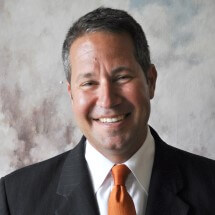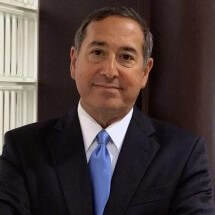Family Lawyers’ Experience with Paternity Fraud
What is your professional experience with paternity fraud? Is it illegal to lie about paternity? What happens if you commit paternity fraud?
Below, we have a list of the attorneys in the video, their respective cities, and their contact information.
Q: Have You Had Any Professional Experience with Paternity Fraud? If so, what has been your experience with paternity fraud?
Randall Kessler:
I’ve probably had more experience with paternity fraud than anybody in the country. I represented a guy who wanted to be the gold star client. He said, “I’ll do everything you want.” He found out 11 years later that he wasn’t the father of the child, and we went to court and the judge said, “When you first got asked the question, ‘Did you want to take a blood test?’ by your lawyer, why didn’t you take a blood test? Did you tell your lawyer you wanted a blood test?” I said, “Judge, that’s attorney-client privilege. You can’t ask him that.” The client said, “No, I’ll tell you, judge. I didn’t take a blood test because I trusted her.” The judge said,” Case over. You should have taken a test. It’s done.”
That was 20 years ago. Carnell Smith is his name. He founded Citizens Against Paternity Fraud, CAPF. This guy, we appealed it to the Georgia Court of Appeals, Georgia Supreme Court, to the United States Supreme Court. The United States Supreme Court did not take it. And so, then he went around the country and he got laws passed in about half the states. We call it the “Who’s Your Daddy statute,” right? So, there are statutes in many states that allow you to go back and say, “I had no reason to doubt her, and now I found out.” And so, I’ve represented a lot of people that have been in that situation. We’ve written articles about it.
The problem is it’s a really difficult issue for the judge because what we’re talking about is legally it’s called de-legitimation, right? You’re taking a child who has two legitimate parents, either mom and dad, or the official legal parents because they were married, or they weren’t married, but they filed a legitimation case, and they became legitimate parents. Now you’re telling that child that the parents, your mom and your dad, are not your legitimate parents. They’re not your legal parents. Even though dad may not be the biological parent, the judge is now going to sever the legal relationship. And there’s a lot of case law that says that’s almost like tearing the skin from the bone. So, it’s a tough case and the laws around the country are a little bit different. Some states you have to go back to court within a few months of finding out that you’re not the father. And if you find out that you’re not the father and you keep acting as the father, well, then you’re stuck. It’s a tough one, but it does happen.
Here’s my solution, and it’s been offered in states like New Jersey and Pennsylvania, but no state will pass it. I think every woman, when they give birth, should sign an affidavit about who the father is right there and then under oath. And it sounds terrible, right? Make someone sign an affidavit, but let’s figure it out right there. Swear under oath that he’s the father. The problem, and this is the really interesting problem, is that most cases of paternity fraud are in married couples, most couples, which is mind blowing, right? We talked about topsy-turvy stuff in divorce. So, if you think about it, for a second, it makes sense.
So, if you’re dating somebody and she’s pregnant, but she has sex with somebody else, she might be more willing to tell you that it was somebody else than if you’re married to her, right? Because if you’re married to somebody, is the wife going to say, “Well, I’ve got something to tell you”? Because that means she might forfeit money or alimony or her whole marriage might go down the hill. People that are more likely to lie about who the father is are people that are married rather than people that are unmarried. So, it’s a very interesting issue.
The nice thing is you can get a $300 test, you can get a test kit at CVS or some pharmacy. A swab of saliva from you and the child, send it off, and they can exclude you as the father, without even having any of the mother’s saliva. The first thing is to get your facts right, then find out what the law is. And I had a judge actually make a woman reimburse my client for $1,000 a month he paid for 55 months, and she was ordered to pay me $25,000 in fees because the judge was so mad at her for covering it up.
So, it’s a real issue. It absolutely is out there. There are support groups. And if anyone wants to, CAPF, Citizens Against Paternity Fraud is a website that this gold star client of mine, Carnell Smith, when he couldn’t win at the trial level, the appellate level, the Supreme Court level, he went across the country and got statutes and laws passed, then he created this support group. That’s one of the cases and one of the clients that I’ll certainly remember. When I told you that I see people down the road and they’re doing good, he’s a good one. He’s one of those. We shared some hard moments. He and his new wife waited for a while to have a new child because he was still paying child support to this other woman, and they couldn’t really afford a new child. And now he realizes he waited 11 years to have a child because he was still paying child support for a child that wasn’t his. It was a tough one, but there’s stories like that we hear over and over and over.
Steven Peskind:
We had a case in my office, I didn’t do it, my associate did it, where the husband claimed he was not the biological father of little Joey and the wife’s boyfriend was the actual biological father. And they were getting a divorce and he was trying to disestablish parentage based upon that fraud, theoretically, and had also wanted to bring a civil cause of action against the wife for fraud. And we ended up getting out of the case. I didn’t like the guy. I thought that it was punishing the child, because the kid was 10 years old and this was his only dad, and I felt it kind of unconscionable to punish a child by severing the relationship because of something that mom might have done. So we ended up getting out of that case.
Joe Booth:
I’m confused sometimes at what people call paternity fraud. Paternity, especially if you’re talking about the father-child relationship, there’s this reality that all men adopt that the baby winds up being there, we’ve been gone for a while, and we have to develop the idea, the identity, and foster our understanding of being a parent. I’m not bothered by non-biologic fathers choosing fatherhood. I have three stepsons. I call them my sons. That doesn’t mean I don’t think their dad’s not their dad. It means that I think I parented them and I’m pretty sure I did. And I have one son and I am his dad and it’s pretty undeniable from his flat feet to his potato head. We’re a pair. So, I’m not bothered by people who want to seriously commit to a relationship with a child.
I am bothered when they try to usurp a relationship that someone has with their own children. And there are very important rights that have to be acknowledged in that. But the acknowledgement of parentage, if you read the forms, it’s not necessarily acknowledging the biological facticity. The most important historical presumption of parentage is to be the spouse of the mother. And in the history of parentage actions, it used to be that the courts would do almost anything not to bastardize a child because disconnecting that parent relationship between the spouse of the mother and the child had dramatic lifelong status ramifications. Those are gone now, but in that history is the history of people who may or may not have been the biological progenitor of a child choosing to parent and choosing to carry on a family name with someone who may not have your same physical characteristics, may have the red hair.
Scott Friedman:
I’ve had a number of cases where people are married, a spouse gets pregnant, everybody thinks that the other spouse is the parent, father, for example, and come to find out later that they’re not. I’ve had a number of those situations come up. In the sense that that’s paternity fraud, yes, but generally, I’ll get a client to say to me, “This doesn’t feel right.” Either “We weren’t intimate during this period of time when supposedly we got pregnant,” or “This kid looks nothing like me,” or whatever it may be that then has you going to dig.
Miles Mason:
I’ve had a lot of experience with paternity fraud. It happens much more often than I could have ever possibly imagined because many of the fathers who end up raising a child that they later find out is not their own end up with a very strong bond and that father doesn’t want to extinguish that relationship.
Now, usually it’s in the form that we would all expect to learn about, which is at the time of separation or divorce, the mother then says, “Well, you don’t get parental rights anyway, because you’re not the father.” Now, then it becomes a very interesting legal problem and the whole analysis depends on what does the father want to do from that point. But surprisingly, many of them say, “I don’t care. I still want parenting time. I’m the legal father,” and under state law, a lot of times they are because they’re on the birth certificate.
But most of the time when you hear paternity fraud, it’s because a father’s being forced to pay child support for a child that is not theirs. And they had no idea nor had reason to know at the time of the child’s birth that he was not the father. And that’s when it gets really sticky and difficult and painful because the legal system does not want to bastardize a child, meaning they don’t want to take a child that has two parents and then make them legally only have one. And that goes against everything that was set up in law long before DNA testing came about.
So, getting through that process is choppy and difficult and sometimes impossible depending on the state law, depending on whether the father was listed on the birth certificate, how long has he been supporting the child, as well as did the father, if there wasn’t an intact marriage at the time, sign what in Tennessee we call voluntary acknowledgement of paternity form, which waves all those rights. And you would think that people would hesitate to sign that document without seeing a lawyer, but I don’t know that I’ve ever talked to anybody that took it to a lawyer. They just signed it, “Yeah, that’s mine.” All right? And that form may be conclusive depending on the facts and circumstances in the state law.
So paternity fraud happens very often. It’s a very difficult situation for lawyers to navigate for a lot of different reasons that make sense if you hear the public policy on the other side, which is you definitely don’t want to have bastardization of children by legal impact, as well as other societal benefits from that. But at the end of the day, there are horrific, horrific consequences for many men that essentially ends their ability to build an estate for themselves and support their legitimate family because they’re having to support children that are not even their own.
Thank you for contributing your experience and expertise to our “Top Family Lawyers Answer Divorce Questions” video series. You are the best. Cheers!

Randy Kessler
Atlanta, Georgia
Kessler & Solomiany, LLC
ABA Family Law Section, Past Chair

Melissa Avery
Indianapolis, Indiana
Broyles Kight & Ricafort, P.C., Of Counsel
ABA Family Law Section, Past Chair

Joseph W. Booth
Lenexa, Kansas
Law Offices of Joseph W. Booth
ABA Family Law Section, Co-Chair of Publications Board

Scott N. Friedman
Columbus, Ohio
Friedman & Mirman Co., L.P.A.
ABA Family Law Section, Past Chair

Stephen N. Peskind
St. Charles, Illinois
Peskind Law Firm, PC
ABA Family Law Section, Author

Barry L. Gold
Chattanooga, Tennessee
McWilliams, Gold & Larramore
TBA Family Law Section, Past Chair

Miles Mason, Sr.
Memphis, Tennessee
Miles Mason Family Law Group, PLC
ABA Family Law Section, Author









